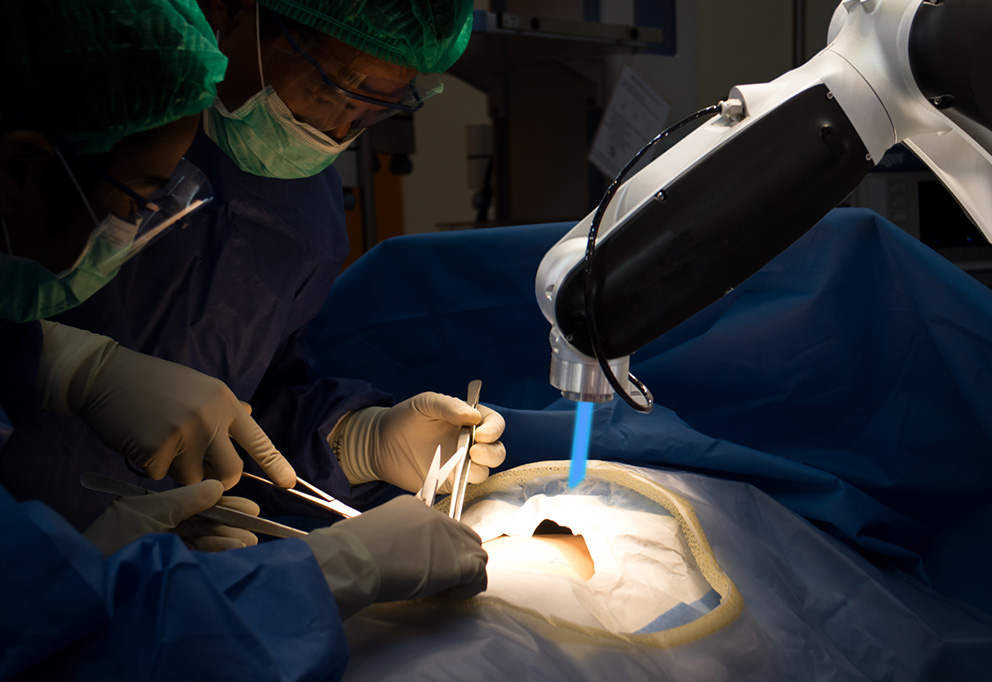There are many stereotypes and preconceptions about artificial intelligence, but AI should above all be considered as a tool, albeit a highly sophisticated one that is constantly evolving and improving as our human intelligence deepens. What makes AI different from any other type of tool is the ability to learn and act accordingly. In the same way that human intelligence has allowed us to flourish as a species by turning our collective hand to pretty much anything, it is the ability of artificial intelligence to improve so many different aspects of our lives that is so exciting.
AI is already a day-to-day reality for many of us, from apps that know what kind of music we like without us asking to ‘personal assistants’ on our smartphones or in our homes that can seemingly answer any question we may have in a matter of seconds. Yet these simple examples are just scratching the surface of what AI can do. Across Europe, artificial intelligence is already making us healthier, giving us cleaner air and energy, keeping us safe online or on the move and improving the quality of our work.
One European project is tackling the issue of breast cancer screening, for example. Current screening techniques lead to 10-20% of patients being wrongly informed that they do not have breast cancer, and tissue-sampling methods are lengthy and often inaccurate. Researchers are now developing a more accurate technique that overlays MRI scans taken by AI-driven robots with images from ultrasound and pressure sensors to give a much clearer view of potentially diseased areas, in turn making it easier to target the area for tissue samples.
Human drivers have to process huge quantities of data simultaneously in order to drive safely. Cars driven using AI work in much the same way. The human eyes, ears, feet and hands are replaced by sensors, but the data collected sends back all the same signals: how close the car is to other vehicles, what speed is it travelling, the behaviour of other road users such as cyclists or pedestrians, etc. One European project is working on developing a system that will allow cars to switch seamlessly between their human and automated drivers, based on data from real drivers in a variety of driving conditions and cases.
AI will also have a major role to play in the ‘smart cities’ of the future in helping to control traffic flow, for example by adapting traffic light rotations in real time to meet on-the-ground traffic flow demands, or by analysing available parking spaces and updating information systems. In fact, AI will have many potential applications in cities, from helping to identify people in crowds of people based on face-recognition software – helpful in preventing terrorist attacks or finding a child lost in the crowd – to analysing air quality conditions and taking appropriate action such as limiting traffic flows or sending out automatic alerts to citizens (all applications already tested in various EU-funded projects).
Strong EU support
The EU has been supporting artificial intelligence for many years, and for the next seven-year EU budget period, which is due to start in 2021, AI and the wider digital economy will play an even more central role: a new funding programme, Digital Europe, has been proposed, with €9.2 billion potentially available to support the further development of the EU’s digital single market, including €2.5 billion specifically to support AI.
For all its ambition, the EU is still lagging behind other parts of the world when it comes to investing in AI. This is why the European Commission has already agreed to increase EU research funding for AI to €1.5 billion between now and 2020; expected investments from Member States and from the private sector should bring this figure closer to €20 billion for the same period. If the Digital Europe funding programme is agreed, EU support for AI from 2021-2027 will total €7 billion, and the aim is to combine this with national funding and investment by the private sector to reach around €20 billion a year.
Coordinated plan
The Commission’s coordinated plan on artificial intelligence sets out how we propose to target these investments and how best to coordinate the development of AI across the EU while keeping it squarely focused on human needs. It is crucial for Member States and the Commission to work together in order to maximise the impact of our investments and ensure Europe’s competitiveness in this domain as a whole.
Among the highlights of the actions to be implemenbted in 2019 are:
- a new fund to support European AI start-ups will be developed, with €100 million available from the Commission by 2020 at the latest
- networks of European AI research excellence centres to improve cooperation between the best research teams in Europe
- the creation of a common European Data Space with a particular focus on healthcare that makes data easily available for re-use to innovators, businesses and public sector
- the development of an AI-on-demand platform to pool knowledge and expertise on AI, including algorithms and tools, to help expand access to the existing body of work on AI in the EU
- working to attract and retain skilled AI professionals in the EU
But setting the goals and the plan for reaching them is only part of the journey. We also have to ensure that we actually reach the goals, that the EU and the Member States alike meet their commitments to investing in AI research and applications, to developing the networks, facilities and skills we will need to make sure Europe is at the cutting-edge of this technology and its use for the benefit of all. This will be the role of the European Commission in the years to come, monitoring and facilitating progress, making sure the conditions are right to support the development and roll-out of human-centric AI in Europe. I will keep you regularly informed about the progress of the action plan.
Ethical guidelines
Humans have an ethical code, an understanding of what is right and wrong, and a system of laws to support it. A similar code and set of rules is needed for AI as well. The EU’s High Level Expert Group on AI, a team of experts from academia, industry and civil society, is developing a set of guidelines that will ensure that trustworthy AI adheres to fundamental rights, principles and values.
The first version of the guidelines has just been published and set out how ‘trustworthy’ AI can be achieved. The guidelines provide an overview of the fundamental rights and high-level principles and values with which AI should comply, set out concrete requirements (such as ensuring privacy, accountability and transparency) for AI systems, and offer a practical list for AI developers and deployers to follow to make sure that AI systems are trustworthy once operational.
The first draft of the guidelines is now open for consultation with the wider AI community, and every reader of this blog is encouraged to contribute to this consultation. After the consultation is closed on 18 January 2019, the Commission will gather all contributions and make them available to the AI expert group. This group will then consider the suggestions when further revising the guidelines. A final version of the guidelines will then be presented to the Commission in March 2019.
Like any tool, artificial intelligence is there to help humans, and it is this focus on AI that underpins the EU’s approach. Developing artificial intelligence is not an end in its own right – it has to serve the greater good of society. That AI can do this is undeniable; it is now up to Europe to make sure the right conditions are in place to make it happen.











